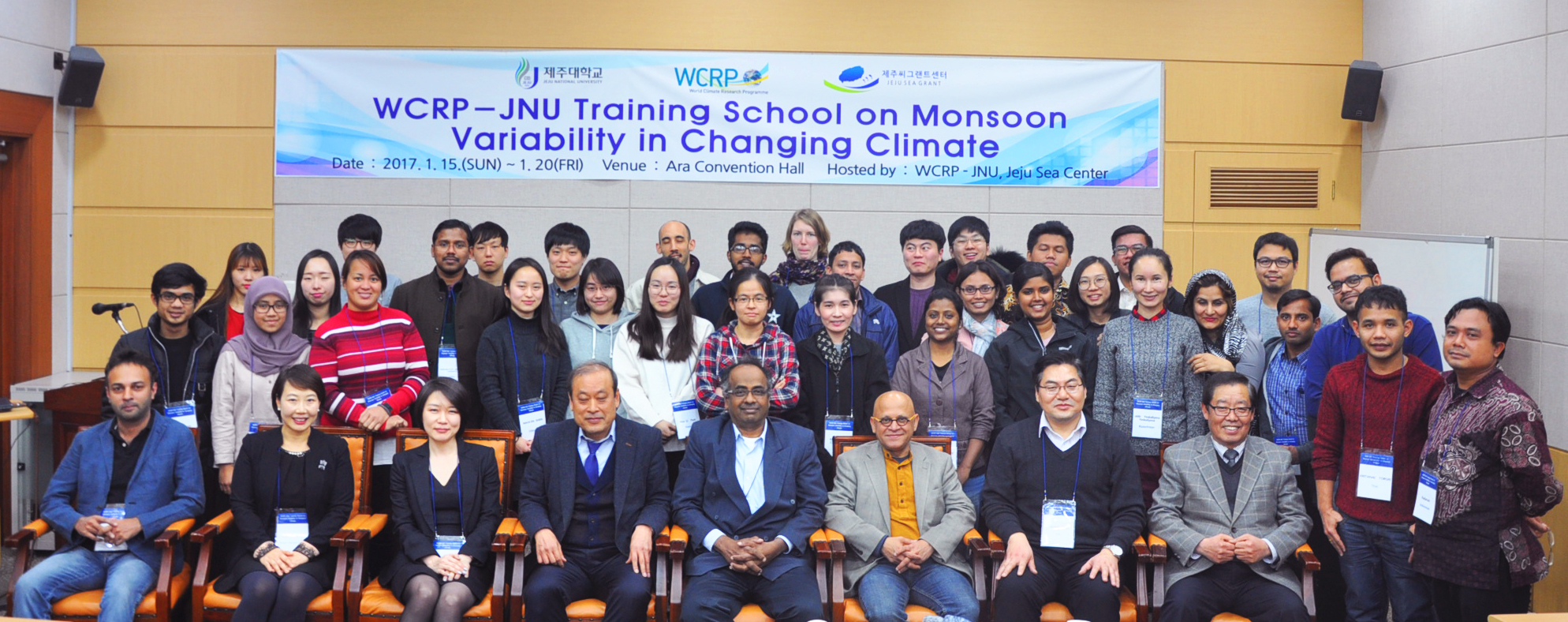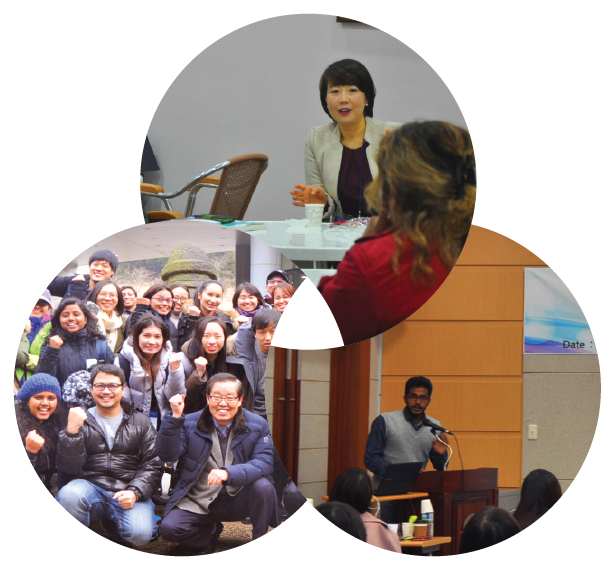Monsoons are a global phenomenon, and the breadth of socio-economic areas in different regions is greatly influenced by its progress and consequences at regional and local scales. The Jeju National University (JNU) has launched a collaborative framework with the World Climate Research Programme (WCRP) on training and education for ocean and climate science, and organized its first training school to share and promote contemporary issues in the area of monsoon study, particularly incorporating the interest of users (of information to understand and predict monsoon phenomena) of the Asia-Pacific region.
This school focused on understanding tropical process and scale interactions therein (sub-daily, intraseasonal to interannual), for the Asia-Pacific region. It also shared knowledge and discussed scientific challenges for monsoon prediction particularly on intra-seasonal to seasonal scales. Participants participated in open dialogues on “user needs”, as well as on the impacts of monsoon variability in changing climate to coastal zones.
The training school targeted young scientists and early-career forecasters in relevant fields and was conducted in English.
- Dates: 16 – 21 January 2017
- Venue: Jeju National University, Jeju, Republic of Korea
- General information: printable overview and programme of the training school (.pdf)
Download the Training School summary document.
Group photo:

Lecturers and Organizers
- Hariharasubramanian Annamalai: Senior Researcher, University of Hawaii (USA)
- Roxy Mathew Koll, Senior Researcher, Indian Institute of Tropical Meteorology (India)
- June-Yi Lee, Professor, Pusan National University (Republic of Korea)
- Raghu Murtugudde , Senior Lecturer, University of Maryland (USA)
- Andrew Turner, Professor, University of Reading (United Kingdom)
- Tianjun Zhou, Professor, IAP/CAS (China)
- Duck-Soon Yang, Professor, JNU (Republic of Korea)
- Byung-Gul Lee, Professor, JNU (Republic of Korea)
- Boram Lee, Senior Scientific Officer, WCRP


